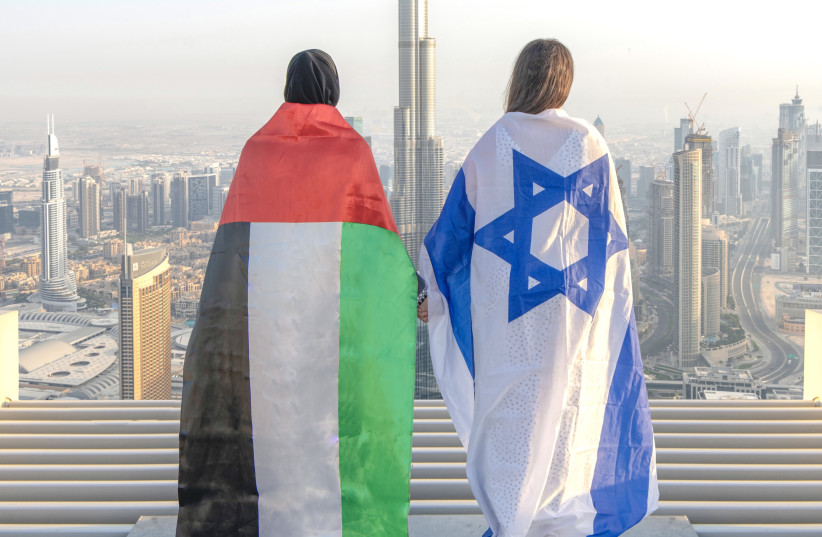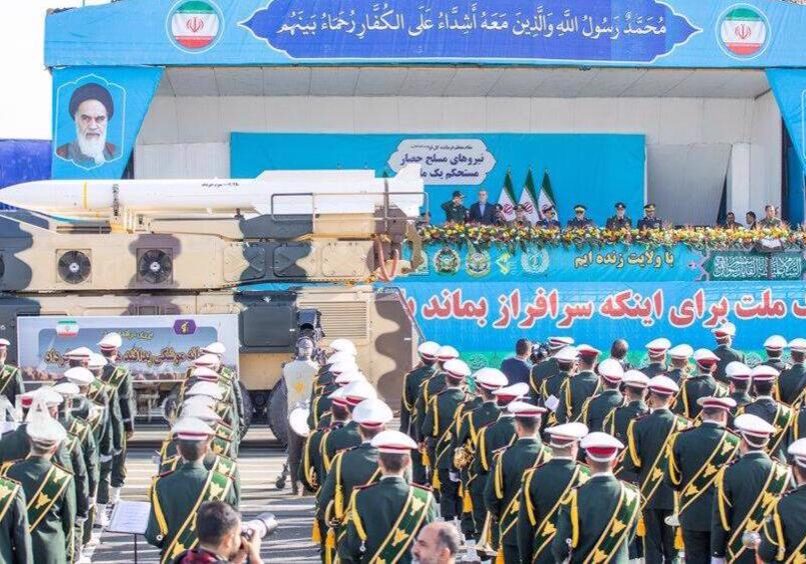Australia/Israel Review
Regional peace – View from the UAE
Nov 25, 2020 | Hend Al Otaiba

The Sept. 15 signing of the Abraham Accords between the United Arab Emirates and Israel is a huge step forward, not only for the two countries, but the entire region. Israel and the UAE had been moving toward greater, low-profile cooperation in various fields over the past few years, but the dramatic nature and timing of the Accords has introduced much-needed optimism into a region in turmoil. The Abraham Accords owe much to the changing attitudes of younger people, and their legacy will flow from their success in advancing the needs and aspirations of the region’s youth.
Last year, Zogby Research Services, a respected polling firm in Washington DC known for its work tracking regional public opinion on a variety of political and social issues, started to see some marked shifts in Arab and Israeli attitudes – things that had not appeared in any of their previous polls.
This was particularly notable in the context of the Palestinian-Israeli conflict, which for decades has dominated the Arab political landscape. Arabs – and many Palestinians – seemed, for the first time, to be signalling that they were favourable to Arab normalisation with Israel, if it resulted in tangible improvements to the lives of Palestinians.
Reflecting the demographic changes in the region, respondents said they were less concerned about political orthodoxies, and wanted to see real, practical change in the lives of Palestinians and a change in the stagnant regional status quo.
The other notable finding was on the Israeli side: The conventional wisdom in the Arab world is that Israelis are not concerned with Arab opinion, and thus what Arabs think about the annexation of the Jordan Valley is more or less irrelevant. But when our Ambassador to the United States, Yousef Al Otaiba, addressed the Israeli public directly for the first time in an op-ed in an Israeli newspaper last June, warning that annexation would have dire consequences for Israel’s relations with its neighbours, Israeli public opinion shifted 12 points against annexation. This strongly suggested that Israelis do indeed care about their relations with the Arab world and are unwilling to risk damaging the prospects of future relations by proceeding with annexation.
All these developments were in play as the Abraham Accords were coming together. We were certain that Israeli annexation would kill the two-state solution once and for all, so we acted fast, offering normalisation of ties, in exchange for a stop to annexation.
People under the age of 35 make up more than 65% of the population of the Middle East. They are the ones whose futures are directly impacted by the actions and choices the region’s leaders take now. And they realise this. It is the youth who are signalling to older generations that their views and attitudes need to change; that they need to adapt to new realities if younger generations are to have a chance at prosperous, fulfilling lives.
For the UAE and Israel, the benefits of the Accords are straightforward. The two countries have never been in a state of active hostility, so there is none of the baggage that attends other Arab-Israeli interactions. We expect to see substantial mutual gains quickly, in a number of areas, from health care to AgriTech and tourism.
Once the Accords were signed, we started working with our Israeli counterparts to meet the enthusiastic demand by young people to see what life is like “on the other side.”
There has been a lot of interest on the part of Israeli and Emirati students and academics in studying and teaching in the other country. One initiative that is coming together now is a UAE-Israel Youth Circle, bringing young professionals together in the arts, literature, diplomacy and science, to share ideas and make connections.
Israel and the UAE have so many complementary interests and strengths, that the possibilities for action and innovation really are endless, and exciting. We expect these connections to grow and evolve quickly, in step with the number of people travelling to the other country for business and tourism. This will be made infinitely easier by 28 weekly direct flights between Tel Aviv and Dubai and Abu Dhabi.
We are looking into other ideas, including the construction of platforms for collaborative action, where Arabs and Jews (and others) can meet and share ideas, and start new initiatives and businesses. We want the youth of the entire region to imagine how this widening diplomatic space can open doors for them.
It is essential that the Palestinians see the concrete benefits from the Accords. While the task of peacemaking is up to the Israelis and Palestinians, we in the United Arab Emirates will continue to do what we can to support the process. We have seen proposals already from various groups and individuals with ideas about how to bring Israelis and Palestinians closer together through creative logistics solutions, virtual education, and collaborative opportunities for Palestinian and Israeli women in tech, and more.
Last but certainly not least, we believe there is a place for the Jewish and Arab diasporas in this process. These are dynamic populations with world-class skills who care about the future of the region, and have influence in their own countries.
Hend Al Otaiba is Director of Strategic Communications in the Ministry of Foreign Affairs, UAE. This article is reprinted from Tablet Magazine, at tabletmag.com, the online magazine of Jewish news, ideas, and culture. © Tablet Magazine, reprinted by permission, all rights reserved.
Tags: Israel, Middle East, UAE






